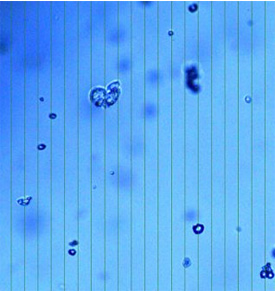Sep 5 2010
Quantachrome Instruments new article (full title "Importance of Zeta Potential in Wastewater Treatment, Powder Tech Note 46") is now available. It focuses on the usefulness of zeta-potential measurements as it relates to moderating suspended solids in wastewater from industrial plants producing biofuels.
Quantachrome Instruments, a leading manufacturer and supplier of powder and porous materials characterization instruments, has just published its 46th technical article, a whitepaper illustrating how the measurements of zeta potential (the surface-related charge around a particle suspended in a fluid) can be used to understand how to flocculate (agglomerate) fine particles and conversely how to disperse flocs (agglomerates) into individual particles.

In addition to describing just what zeta potential is exactly, the article focuses on a particular application relating to wastewater treatment in the growing field of biofuel production, in this case ethanol from corn.
Solid byproducts have to be removed and evaporated to dryness, and this step is much more energy efficient when the solids are flocculated. Knowing how to flocculate the solids is paramount, and studying zeta potential is key to that knowledge.
The results of zeta potential measurements using Quantachrome's Zeta-Reader, including images captured using the devices high magnification digital video system, are presented. Readers interested in obtaining a copy of the full paper can obtain one by emailing [email protected].